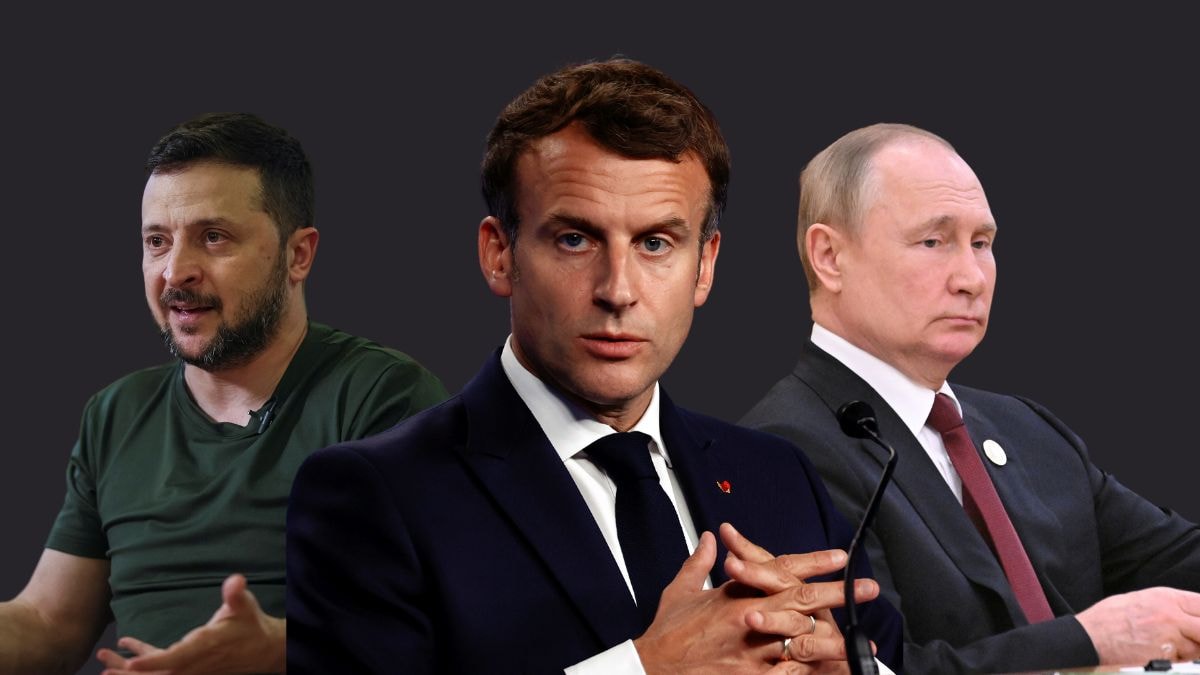French President Emmanuel Macron said that the country does not need “Russia’s permission” to deploy peacekeeping troops in Ukraine after an eventual ceasefire in the warread more
French President
Emmanuel Macron said that his country does not need “permission” from Russia to deploy troops or provide security guarantees to Ukraine. Macron insisted that France, the United Kingdom and other nations that are providing security to the war-striken nation after an eventual
ceasefire would not be aiming to deploy a “mass of soldiers”.
Instead, he proposed to send contingents of several thousand troops to key locations in Ukraine to ensure that the country remains protected. The remarks from the French leader came during his interview with the country’s multiple newspapers, including Le Parisien and La Dépêche de Midi. Macron said that “several European nations, and indeed non-European ones”, had “expressed their willingness” to join a possible deployment to Ukraine to secure a future peace agreement with Russia.
Macron also noted that these troops would also conduct training programmes to make the Ukrainian soldiers more advanced and conflict-ready. Macron maintained that proposed contingents from countries that were members of the Nato alliance would serve as “a guarantee of security” for Ukraine and that “several
European nations, and also non-European, have expressed their willingness to join such an effort when it is confirmed”.
Ukraine should not make any concessions without guarantees
While speaking on the terms of the ceasefire, the French leader warned that “under no circumstances can the Ukrainians make territorial concessions without having any security guarantees.” He also made it clear that the deployment of troops would not depend on Russia’s take on the matter.
“If Ukraine requests allied forces to be on its territory, it is not up to Russia to accept or reject them,” the French leader averred. Macron’s comments came days before he was scheduled to meet the new Canadian Prime Minister,
Mark Carney, on Monday. The very next day, he will be travelling to Germany, where he will hold talks with Chancellor Olaf Scholz.
On Saturday, UK Prime Minister Keir Starmer led a
virtual meeting of 30 international leaders and discussed the ongoing war in Ukraine. The meeting was attended by Macron and Italy’s prime minister, Giorgia Meloni, as well as leaders from Australia, Canada and New Zealand.
While speaking to the media after the meeting,
Starmer challenged the Russian president to sign the ceasefire if he is “serious about peace”. He made it clear that Ukraine’s allies would keep increasing the pressure on the Kremlin, including by moving planning for a peacekeeping force to an “operational phase”.
Russia “does not give the impression it sincerely wants peace”, Macron said in a statement to Agence France-Presse after the meeting. On the contrary, the Russian president was “escalating the fighting” and “wants to get everything, then negotiate”, he said. “Russia must respond clearly, and the pressure must be clear, in conjunction with the US, to obtain this ceasefire,” the French leader concluded.
With inputs from agencies.
